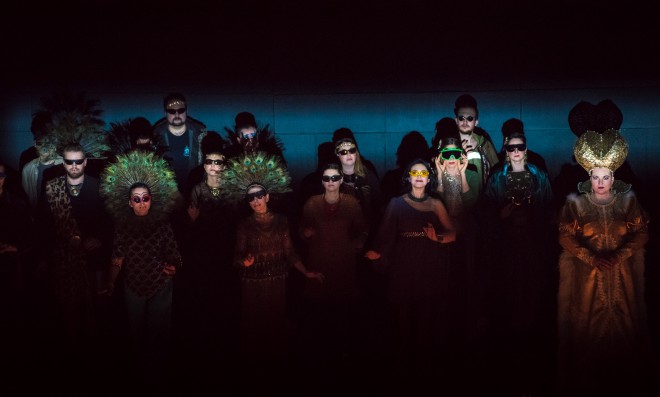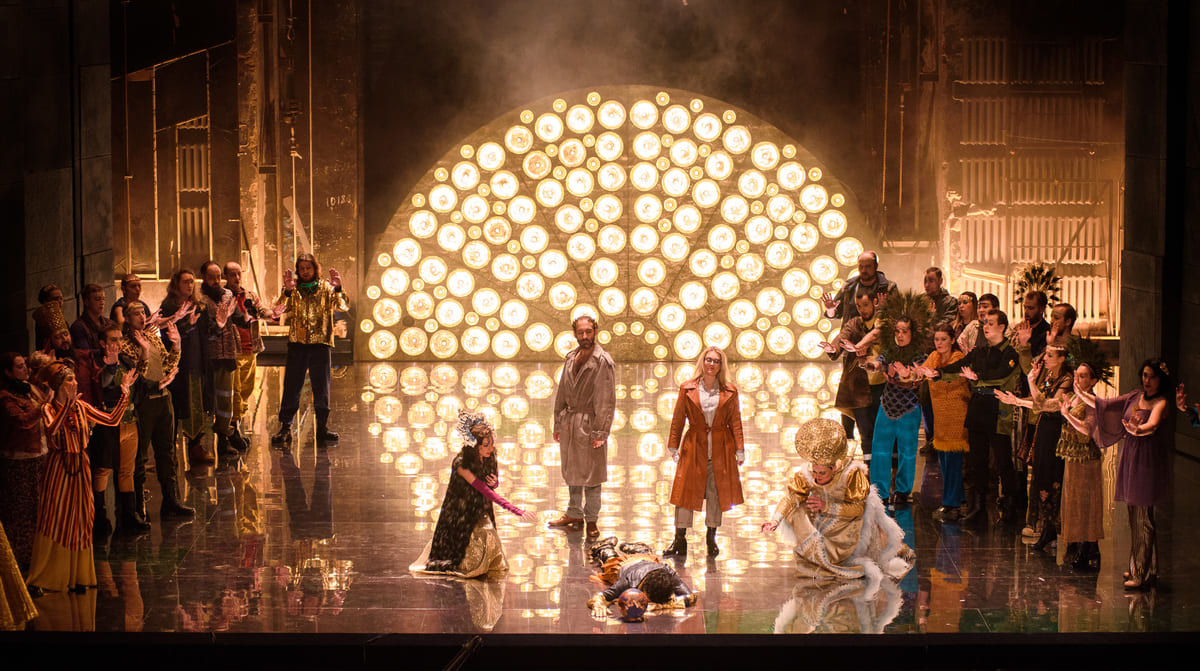
(Lyrical) Tragedy in Versailles: Phaéton refuses to stop his chariot!
01/06/2018 - Olyrix - Stéphane Lelièvre
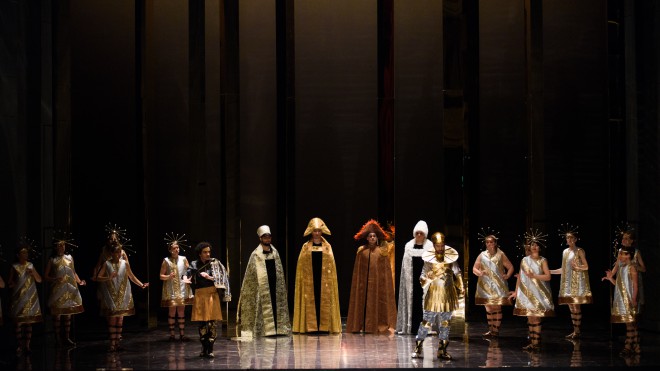
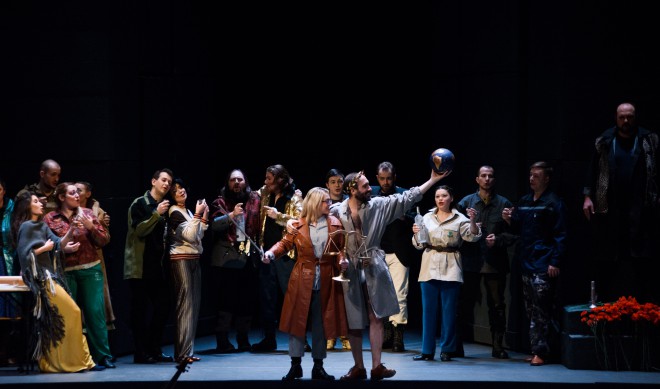
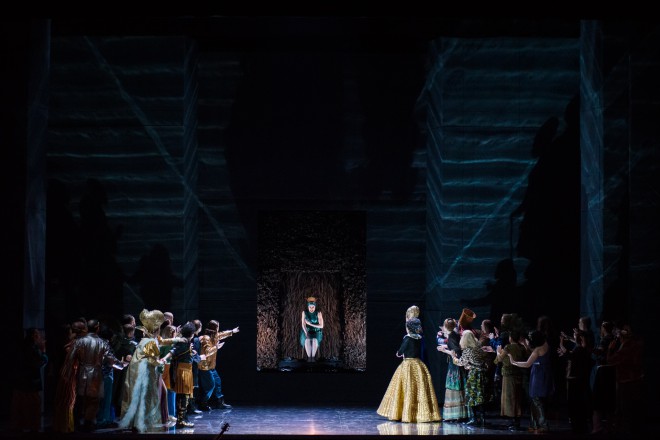
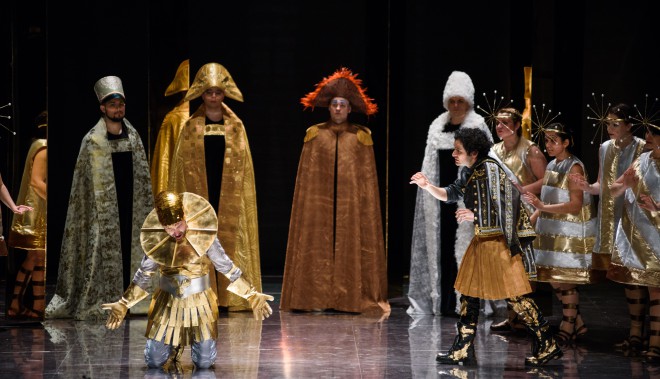
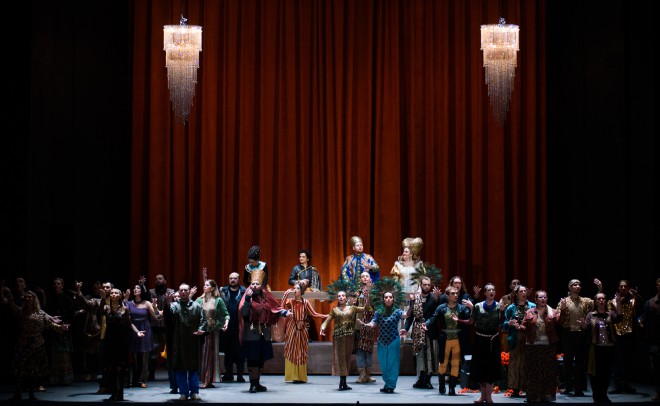
Benjamin Lazar’s direction is a kind of compromise between the historical reconstruction of a show of the time (codified body language, low-angle lighting, the singers sometimes find themselves literally “under the footlights”) and a rereading not contemporary (even if certain costumes or elements of décor clearly come from our time) but atemporal. The show discloses little by little an emotion in perfect harmony with that transmitted by the music and offers some unforgettable scenes, such as the first scene of Act III (presenting a subtle game with light and shadow – sometimes in a mirror image on the backstage wall, or projected right up on the ceiling of the Opéra), or the magnificent final appearance of Phaéton’s chariot, a dazzling wheel of light, from the centre of which the Sun’s son emerges.
